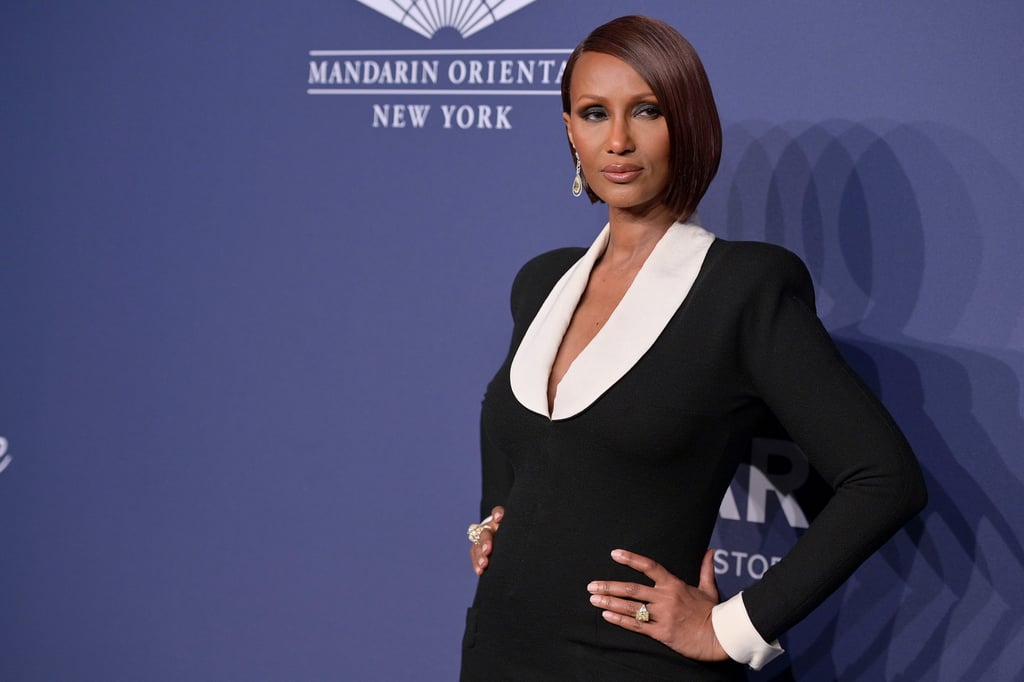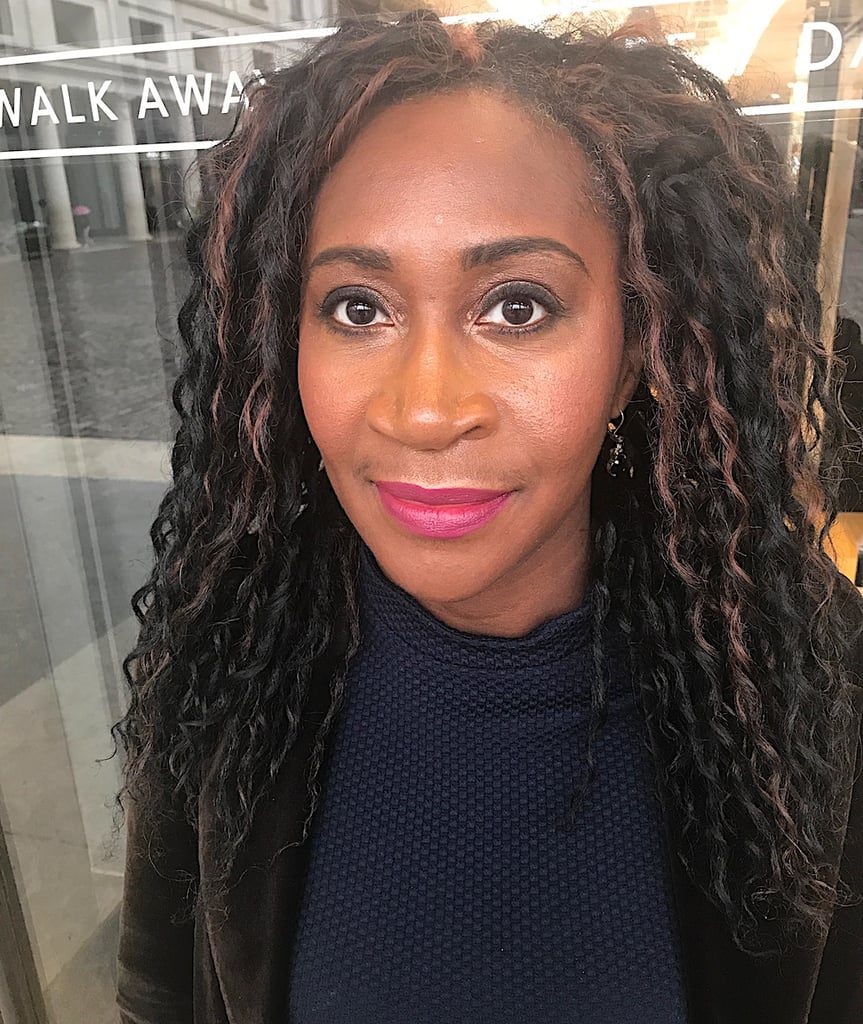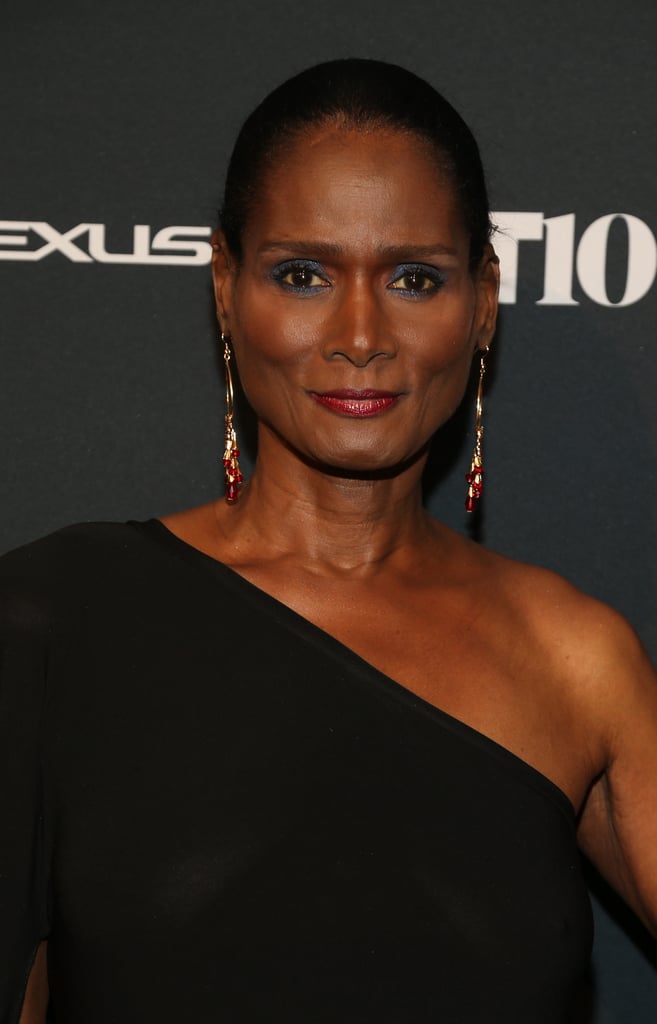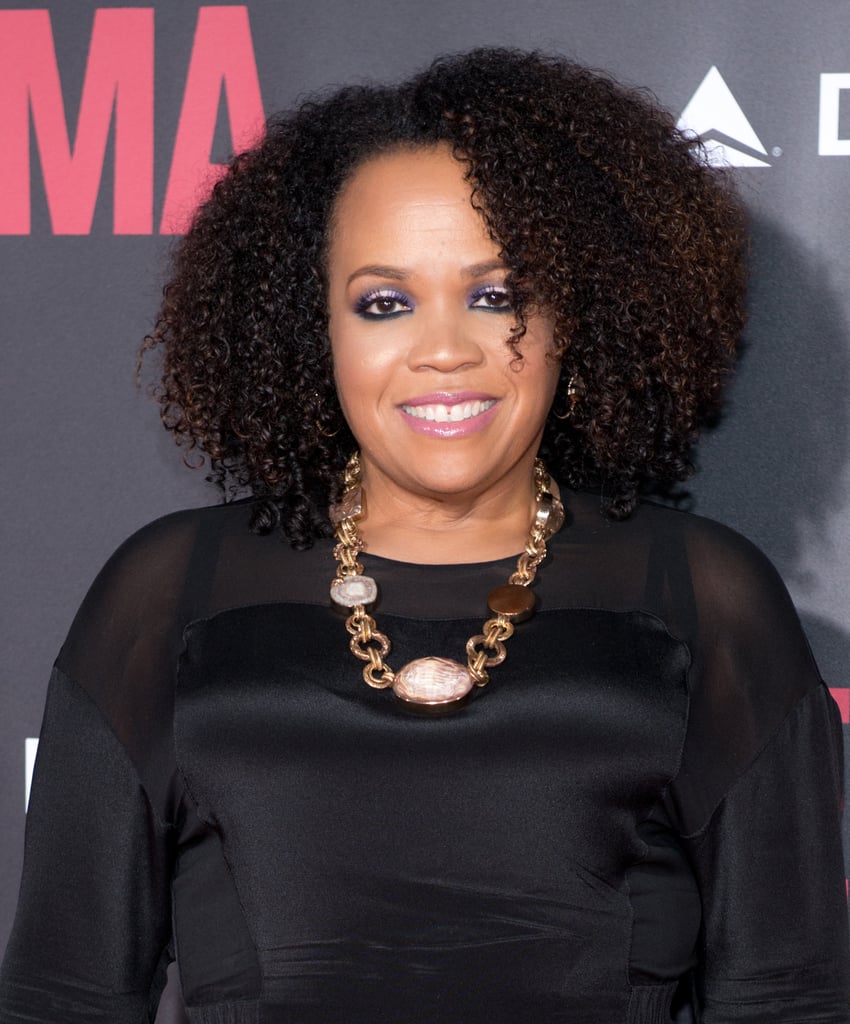In recent years, diversity has become a much-talked-about topic in the beauty industry [1], with the global racial-justice movements of 2020 only amplifying the conversation [2]. It is safe to say that for a very long time, the skin- and hair-care needs of Black women were simply an afterthought when it came to new product launches and ingredient innovation. Thankfully, things are starting to change: difficult conversations are taking place [3], and many of the beauty brands we know and love are stepping up to ensure that the needs of Black women are met. When we think of diversity, our first thought may be an extensive foundation shade offering, but it is so much more than that.
We are celebrating nine Black women who have had an undeniable impact on the beauty industry through speaking up or using their respective platforms to help usher in the changes they wanted to see. Each and every one of these inspiring game changers has transformed the beauty industry for the better.
Iman
After years walking the runway for high-fashion designers like Calvin Klein and Yves Saint Laurent and posing for major magazines, Iman saw a gap in the industry after failing to find products that worked for her skin tone. On her first job for American Vogue in 1976, a makeup artist asked if she had brought her own foundation to the shoot, as he didn't have anything suitable for her skin tone. As a result of this encounter, Iman began mixing her own foundations, and in 1994, she launched Iman Cosmetics.
Not only did Iman give women of color a choice of options, but her products were also accessible and reasonably priced. To this day, Iman Cosmetics has one of the bestselling foundations in America. Iman certainly paved the way for more diversity within the cosmetics industry.
Ronke Adeyemi
Ronke Adeyemi is the founder of Brown Beauty Talk [4], the UK's leading beauty platform aimed at Black women. It all began in 2013 when Adeyemi identified a gap in the market for Black and Asian women to discuss beauty issues. As a result, Brown Beauty Talk was born and #BBT talks took place on Twitter on a weekly basis. The following year, the Brown Beauty Talk website was launched.
For years, the BBT team has featured Black-owned brands on its platforms. They have also interviewed a number of industry professionals and public figures and keep their readers hooked with articles such as "The Beauty Product I Cannot Live Without" and "What's in My Makeup Bag?"
In October 2020, Brown Beauty Talk launched the first beauty directory for Black-owned beauty brands. The aim of the directory is for beauty-lovers to find products that have been created with Black women in mind. The directory features a number of hair-care, skin-care, and makeup brands. A list of online retail sites that stock products for Black-owned businesses is also accessible.
Brown Beauty Talk was recently voted one of the Top Ten Beauty Blogs by Vuelio. What makes the website so special is that it has provided (and continues to provide) Black and Asian women with a safe place to discuss and discover their hair and beauty needs.
Tracey "Africa" Norman
Tracey Norman was the first Black transgender woman to model. At the start of her career, she didn't disclose her identity and was able to work with publications such as Essence, Vogue Italia, and Harper's Bazaar India. In 1975, she appeared on the box of Clairol's Born Beautiful Hair Colour No.512. The shade was one of Clairol's bestsellers at the time. In 1980, the truth about her birth gender was discovered by a hairdresser while on a photo shoot. The hairdresser publicly outed her, and as a result, companies refused to work with her. After years struggling to find work, Norman became an active figure in the drag ball community.
In 2015, Norman became the subject of a biographical piece written by digital fashion site The Cut [5]. The following year, Clairol signed her as the face of its "Nice 'n Easy Color as Real as You Are" campaign. Norman later became one of two openly transgender models to appear on the cover of Harper's Bazaar.
It took a lot of courage for Norman to enter the world of modeling, especially at a time when transgender people weren't accepted in society. As attitudes toward the LGBTQ+ community have now thankfully changed, the revitalization of Norman's career was well overdue.
Lisa Price
What started as Lisa Price's kitchen-table project turned into the mass success known as Carol's Daughter [6]. The product line for natural-care enthusiasts has even grown to include body- and skin-care offerings for a variety of types and needs. In 2014, beauty giant L'Oréal acquired Carol's Daughter as part of an effort to make multicultural consumers a priority for future business. Natural hair is a part of the Black beauty fabric, but it's safe to say Price and her Harlem-bred brand brought curly coils to the forefront.



